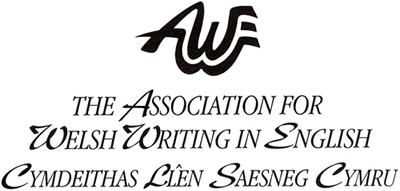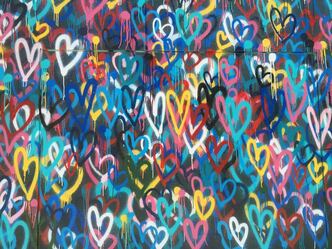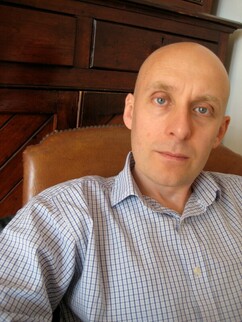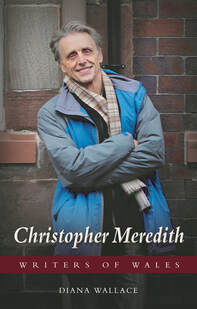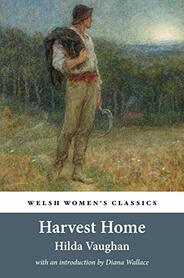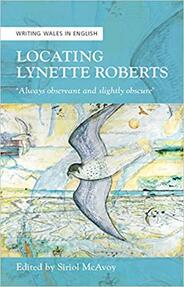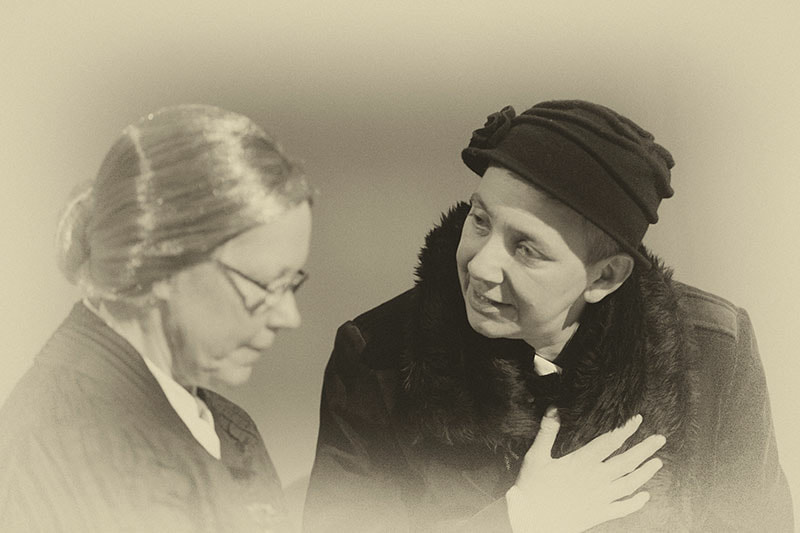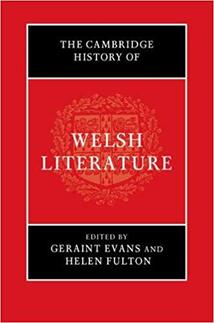Date and Location
The conference will be held at Gregynog Hall, Newtown, from Friday 10 May to Sunday 12 May, 2019.
Site Images
If you'd like to see some images of the main entrances to Gregynog and the rooms in which we hold many of our conference events, please visit the Site Images gallery.
Booking
Automatic overnight booking is now closed. If you'd like to make an enquiry about possible spaces, please contact [email protected].
- To book as a day-only delegate (no accommodation at Gregynog), please click here.
Final Programme
|
Please download the final conference programme
|
| ||||||
Keynote Speakers
Friday
Our Friday night keynote will be Dr Andrew Larner, who will speak on ‘Neurology and Literature: a fruitful interaction?’. Dr A.J. Larner is a consultant neurologist with a special interest in cognitive disorders, based at The Walton Centre for Neurology and Neurosurgery in Liverpool.
Saturday
Our Saturday keynote will be Dr Jo Edge. Dr Edge, who is based in The John Rylands Research Institute, is an expert in the history of medicine and will be talking to us about the problems of using contemporary diagnostic categories in humanities scholarship. Her title will be 'Retrospective diagnosis, Obsessive-Compulsive Disorder and the Historian'.
Our Friday night keynote will be Dr Andrew Larner, who will speak on ‘Neurology and Literature: a fruitful interaction?’. Dr A.J. Larner is a consultant neurologist with a special interest in cognitive disorders, based at The Walton Centre for Neurology and Neurosurgery in Liverpool.
Saturday
Our Saturday keynote will be Dr Jo Edge. Dr Edge, who is based in The John Rylands Research Institute, is an expert in the history of medicine and will be talking to us about the problems of using contemporary diagnostic categories in humanities scholarship. Her title will be 'Retrospective diagnosis, Obsessive-Compulsive Disorder and the Historian'.
Creative Keynote
|
Ian Rowlands (in conversation with Daniel G. Williams)
Ian Rowlands is a Wales based playwright / director whose play Blink (that deals wth the serial sexual abuse of pupils at Ysgol Gyfun Rhydfelen by the teacher, John Owen - that resulted in the Clywch Inquiry) toured Wales in 2007 and played off Broadway (as part of the Brits Off Broadway Festival 59E59 in NY) in 2008. Many 'friends' (fellow pupils at Ysgol Gyfun Rhydfelen to whom the play is dedicated) suffered horrifically at the hands of Owen but have, as one policeman remarked to Rowlands when he gave evidence, 'been incredibly successful in the world.' Indeed it is the paradox of the abuser enabling a career that torments several of those abused to this day - two of whom have written their own plays; their own exercises in healing. Rowlands's work is all autographic, stemming from immaterial Events, that are, as Žižek terms them ‘effects which exceed their causes’ resulting in radical re-framing of lives. Williams will quiz Rowlands about the relationship between the ‘Clywch Inquiry’ and political devolution, and the genesis and reception of Blink - a text that all ‘friends’ have claimed as their own for the pattern of abuse was common to all. |
End-of-Lunchtime Creative Reading: Chris Meredith
|
Just to confirm even more clearly that there's an all-round stellar line-up at the 2019 conference, we're excited to announce that Chris Meredith - one of Wales's contemporary greats - will be reading from his poetry and prose at our Saturday end-of-lunchtime creative slot.
A big thanks to Chris for joining the conference again - it's lovely to have him back with us! Don't forget that Professor Diana Wallace recently published her scholary study of Chris's work with the University of Wales Press. Not got a copy yet? You should... Click on the image here and buy one from UWP.
|
Book launches!
|
One of the recurring pleasures of the annual AWWE conference is the chance to celebrate the arrival of exciting new books. So we're very pleased to announce that our two book launches this year are...
Friday Honno's new Welsh Women’s Classics edition of Hilda Vaughan’s Harvest Home, edited by Professor Diana Wallace Saturday Dr Siriol McAvoy's edited volume Locating Lynette Roberts (published by the University of Wales Press) |
Performance
|
We're very excited to announce that the fabulous Living Histories Cymru - Helen Sandler and Jane Hoy - will be with us again this year for our Friday night performance slot. After their wonderful dramatised talk at AWWE 2018 - 'An Extraordinary Female Affection: At Home with the Ladies of Llangollen' - 2019 will see them perform ‘“The oldest New Woman & her incorrigible Welsh friend” – the hearts and minds of Miss Frances Power Cobbe & Miss Mary Charlotte Lloyd’.
‘“The oldest New Woman & her incorrigible Welsh friend”’ is a lively ‘conversation in costume’ between an interviewer from the present day and two women campaigners: Miss Frances Power Cobbe (b.1822), an Irish feminist, journalist and political activist; and her companion or ‘wifey’, Miss Mary Charlotte Lloyd (b 1819), a Welsh sculptor from Corwen. |
We will hear about their mental and emotional lives, as well as the battle to win ‘hearts and minds’ for the causes of animal rights and women’s suffrage. Mary was less emotionally resilient, being a self-declared ‘country mouse’ who loved their home near Dolgellau in North Wales, whilst Frances enjoyed the cut and thrust of journalism, public speaking and London life.
Their special guest at Gregynog is their lifelong friend, Mr John Gibson RA, a world-famous sculptor born in Conwy. The conversation will be followed by a Q and A.
Their special guest at Gregynog is their lifelong friend, Mr John Gibson RA, a world-famous sculptor born in Conwy. The conversation will be followed by a Q and A.
Editorial Focus: Making a History of Welsh Literature
|
Late on Friday afternoon, we'll be having an 'Editorial Focus' session in which the editors of the new Cambridge History of Welsh Literature will be talking about their vision for the book and the editorial process that was involved in bringing the volume to fruition.
This will be a must-see event for anyone interested in editorial matters - and as an introduction to a milestone publication in the history of Welsh literary scholarship. Editors Professor Helen Fulton and Geraint Evans will be in conversation with Dr Lisa Sheppard. |
Conference Fees, Accommodation, Financial Support & Travel
Conference fees are as follows:
|
Standard Rates
|
Rates for Student, Unwaged & Low-Waged Delegates
|
Accommodation
All accommodation is provided on-site at Gregynog Hall.
Financial Support
Through the kind financial support of AWWE Patrons, a limited number of bursaries will be available to offset travel costs for student, unwaged and low-waged delegates. Please contact the Association Treasurer for more details. We will also consider reducing fees for student, unwaged and low-waged delegates in cases of particular financial hardship. Again, please contact the Association Treasurer for advice.
Travel
Directions to Gregynog Hall are provided here. Please note that conference fees do not include travel costs.
All accommodation is provided on-site at Gregynog Hall.
Financial Support
Through the kind financial support of AWWE Patrons, a limited number of bursaries will be available to offset travel costs for student, unwaged and low-waged delegates. Please contact the Association Treasurer for more details. We will also consider reducing fees for student, unwaged and low-waged delegates in cases of particular financial hardship. Again, please contact the Association Treasurer for advice.
Travel
Directions to Gregynog Hall are provided here. Please note that conference fees do not include travel costs.
Call for Papers
In the opening essay of Literatures of Madness: Disability Studies and Mental Health (2018), Elizabeth Brewer writes that ‘In recent years, disability studies publications have increasingly included perspectives on psychiatric disability. Any disabilities studies journal routinely publishes articles on madness along with work on physical and sensory disabilities; this was not the case even fifteen years ago.’ This conference seeks to draw the study of Welsh writing in English into such discussions about mental lives, under the impetus of the contention that, in Brewer’s words, ‘mental and physical differences are a defining feature of humanity’. This emphasis on differences is crucial, because of the focus that it also demands on the topic of mental diversity itself. Thus, in her 2016 study Literature and Disability, Alice Hall notes how an increasing awareness of ‘a variety of atypical cognitive styles and neurological differences’ has fed into analyses of ‘diverse texts on these topics’.
Alongside this recent growth in scholarship on mental health and cognitive/neurological diversity, Ingeborg Jandl et al. argue in their 2017 volume Writing Emotions that ‘After a long period of neglect, emotions have become an important topic in literary studies’ – although, given the fact that ‘emotions have been a topic in philosophy and the arts since antiquity’, they do question whether it is appropriate to think in terms of what Thomas Anz has called an ‘emotional turn’. Such scholarly engagements with emotions concern themselves with ‘emotional expression’ (Jandl et al.) in the broadest sense – artistic engagement with ‘emotions such as guilt, hatred, love, jealousy and fear’, as Susanne Knaller puts it. However, they are also concerned with issues such as ‘mental injuries, personal insecurities and inner conflicts’ (Jandl et al.) – issues that seem to share significant concerns with analytical approaches that concentrate primarily on questions of mental health.
This conference, then, invites contributions that engage with questions about mental and emotional lives across the full range of the English-language literatures of Wales, through a focus on issues including but not limited to:
Proposals and Deadline
A Final Note
This conference grows out of personal experience for all of the organisers – personal experience, variously, of mental health conditions, of experience with neurodiversity, and of differing sorts of engagement with mental health services. We believe there should thus be space within the context of the conference for work that emerges out of personal experience, alongside work that does not.
Alongside this recent growth in scholarship on mental health and cognitive/neurological diversity, Ingeborg Jandl et al. argue in their 2017 volume Writing Emotions that ‘After a long period of neglect, emotions have become an important topic in literary studies’ – although, given the fact that ‘emotions have been a topic in philosophy and the arts since antiquity’, they do question whether it is appropriate to think in terms of what Thomas Anz has called an ‘emotional turn’. Such scholarly engagements with emotions concern themselves with ‘emotional expression’ (Jandl et al.) in the broadest sense – artistic engagement with ‘emotions such as guilt, hatred, love, jealousy and fear’, as Susanne Knaller puts it. However, they are also concerned with issues such as ‘mental injuries, personal insecurities and inner conflicts’ (Jandl et al.) – issues that seem to share significant concerns with analytical approaches that concentrate primarily on questions of mental health.
This conference, then, invites contributions that engage with questions about mental and emotional lives across the full range of the English-language literatures of Wales, through a focus on issues including but not limited to:
- literary engagements with issues such as depression, anxiety, OCD, PTSD;
- questions of mental wellbeing;
- trauma narratives;
- survivor activism and literary studies;
- notions of madness, including the legacy of Foucault’s work;
- creative practice and mental health care;
- the rise of Mad Studies;
- intersections between mental health and class, gender, ethnicity;
- relationships with psychoanalytical approaches to literature (often rooted in the work of Freud and Lacan);
- literary engagements with neurodiversity (‘autism, intellectual disabilities, learning disabilities, attention deficit, hyperactivity, epilepsy, bipolar disorder, Tourette’s syndrome, and schizophrenia’: Hall, Literature and Disability);
- mental lives and institutions/institutional practices;
- textual engagements with ‘emotions such as guilt, hatred, love, jealousy and fear’ (Knaller, in Writing Emotions);
- texts as generators of readerly emotion;
- emotion and creative practice;
- ‘emotions and feelings [as] a necessary foundation for our self-understanding and for understanding others’ (Knaller, in Writing Emotions);
- distinctions between emotion and feelings;
- textual engagements with emotional lack;
- boredom and apathy;
- relationships between emotions, knowledge, and action.
Proposals and Deadline
- Proposals for 20-minute papers or multi-contributor panels should be sent to the organisers at [email protected] by Monday 25 March 2019.
- Proposals for individual papers should be no more than 300 words long and should include a short biographical note. Proposals for panels should be no more than 500 words long and should include a short biographical note of each participant.
- Proposals (either for individual papers or for panels) may be for critical work or for creative-critical crossover work.
- We welcome papers from new and emerging scholars.
- Please note that the conference will not accept proposals for all-male panels.
A Final Note
This conference grows out of personal experience for all of the organisers – personal experience, variously, of mental health conditions, of experience with neurodiversity, and of differing sorts of engagement with mental health services. We believe there should thus be space within the context of the conference for work that emerges out of personal experience, alongside work that does not.
Conference Organisers
Cath Beard (Swansea University), Matthew Jarvis (Aberystwyth University/University of Wales Trinity Saint David), Luke Thurston (Aberystwyth University).
Latest news and discusssions
For conference news and discussions, we are using the hashtag #awwe19 on Twitter.
Contact
To contact the conference organisers with any queries, please email [email protected]
